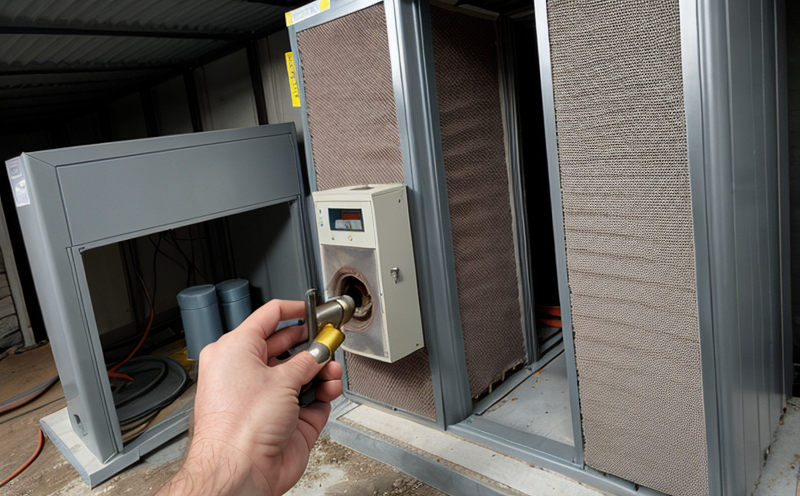GB T 11048 Measurement of thermal resistance of textiles
The GB/T 11048 standard specifies methods for determining the thermal resistance and related properties of textiles. This method is crucial in evaluating how effectively a textile insulates against heat transfer, which is essential for products like clothing, insulation materials, and building fabrics.
Thermal resistance (R-value) measures the ability of a material to resist heat flow through it. A higher R-value indicates better thermal insulation properties. This test is particularly important in sectors such as textiles where the quality of insulating materials directly impacts energy efficiency and comfort levels for consumers.
The GB/T 11048 procedure involves subjecting textile samples to controlled temperature and humidity conditions while measuring heat flow through them. The apparatus used typically includes a calorimeter, which allows accurate measurement under standardized conditions. Proper sample preparation is critical; this often entails conditioning the fabric in specific relative humidity and temperature environments before testing.
The results provide valuable data for product development teams to optimize insulation performance. For instance, it helps in selecting appropriate materials for winter clothing or improving the thermal efficiency of home textiles like curtains and bedding.
Understanding the thermal resistance of textiles is also vital for compliance with international standards and regulations that ensure products perform as expected across various climatic conditions. This test contributes significantly to enhancing product quality, thereby meeting customer expectations regarding comfort and energy savings.
- Environmental Impact: By improving the thermal performance of textiles, we can reduce the overall consumption of heating or cooling resources, which in turn lowers greenhouse gas emissions associated with energy production. Optimal insulation helps maintain comfortable indoor temperatures more efficiently, reducing reliance on high-energy-consuming appliances.
- Sustainability: Enhanced thermal resistance means less need for artificial heating and cooling systems, thus decreasing the carbon footprint of both manufacturing processes and end-use applications. This aligns with broader sustainability goals by promoting resource efficiency.
Why It Matters
The thermal resistance measurement outlined in GB/T 11048 is more than just a technical procedure; it plays a pivotal role in ensuring that textile products meet user expectations and regulatory requirements. For quality managers, this test offers critical insights into the performance of their materials under real-world conditions.
Compliance officers benefit from reliable data that helps them stay ahead of changing standards and regulations related to energy efficiency and consumer protection. R&D engineers can use these results to innovate by experimenting with new materials or manufacturing processes aimed at enhancing thermal properties without compromising other desirable qualities like strength or flexibility.
From a procurement perspective, understanding the thermal resistance of textiles allows for better decision-making when sourcing raw materials. It ensures that suppliers deliver products meeting specified performance levels, contributing to overall cost control and improved product quality.
Environmental and Sustainability Contributions
- Energy Efficiency: Improved thermal resistance leads to better energy efficiency in buildings and clothing items. Less heat loss through walls, windows, or garments means reduced heating costs and lower carbon emissions.
- Resource Conservation: Enhanced insulation reduces the amount of raw materials needed for construction projects while minimizing waste by extending product lifecycles.
- Better Waste Management: Longer-lasting products mean less frequent replacement, reducing landfill contributions and encouraging recycling practices.
Competitive Advantage and Market Impact
Companies that invest in thorough thermal resistance testing gain significant competitive advantages. They can introduce innovative products to the market faster by leveraging precise data from GB/T 11048 tests. This capability enables them to address emerging trends such as eco-friendly textiles or smart fabrics designed for specific temperature control.
Moreover, adherence to rigorous testing protocols like those prescribed in GB/T 11048 enhances brand reputation and trust among consumers who value sustainability and performance. Such companies are better positioned to attract environmentally conscious buyers, thereby expanding their customer base and market share.
The demand for sustainable practices continues to grow globally, making investments in accurate testing indispensable for maintaining a competitive edge. By ensuring compliance with international standards and providing robust evidence of product performance, businesses can foster long-term relationships with satisfied customers and regulatory authorities alike.





